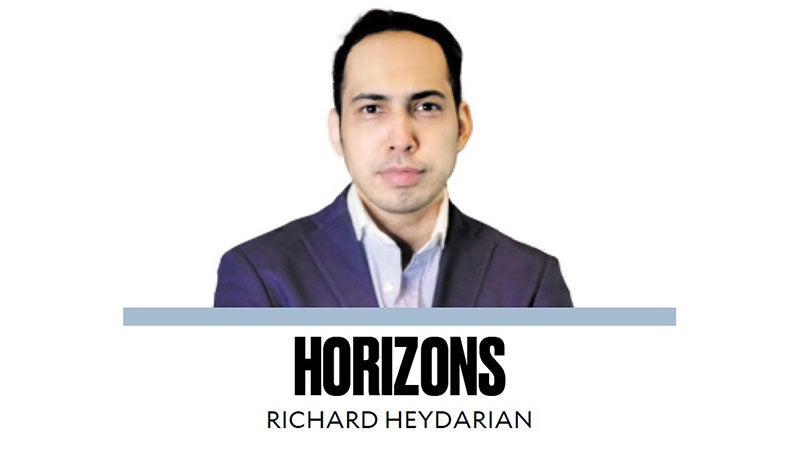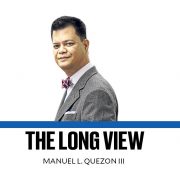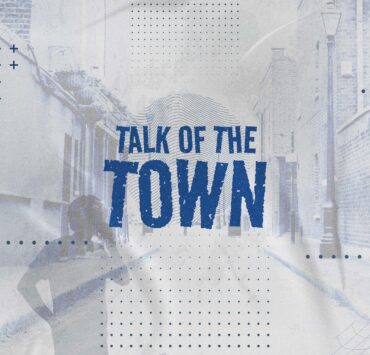Duterte, demagogues, and the middle class

The test of a first-rate intelligence is the ability to hold two opposed ideas in mind at the same time and still retain the ability to function,” F. Scott Fitzgerald famously argued, emphasizing the inherently dialectical nature of genuine intellect. More importantly, however, genius is ultimately about “the ability to put into effect what is on your mind.”
By all indications, Fitzgerald’s fellow Princetonian, Walden Bello, exhibits “genius” in ways unparalleled by any fellow Filipino intellectual since Isabelo de los Reyes. Author of a dozen global bestsellers, including one that coined the very term ”deglobalization,” Bello’s impressive range of in-depth political analysis over the past half-century covers much of the world. But what makes him even more compelling as a public intellectual is his praxis, namely the unparalleled courage to repeatedly risk his life for a greater cause, both in his home country and beyond.
The newly published “Global Battlefields: My Close Encounters with Dictatorship, Capital, Empire, and Love” (Ateneo de Manila University Press) provides a precious insight into the works, life, and loves of one of the most prolific thinkers in the post-colonial world. It’s a surreal combination of literary elegance, personal reflections, and political analyses. On one hand, it’s an excellent overview of his oeuvre—a “Walden Bello for Dummies.” Moreover, it reads like a “Forrest Gump” drama, except one told from the perspective of an activist-sociologist, who happened to repeatedly find himself in the middle of some world-historical event, either by chance or design.
From his accidental entry into the world of activism at the height of the Indo-China Wars to his decade-long engagement with the anti-Marcos resistance movement, and, ultimately, pivotal role in various anti-globalization movements across much of the post-colonial world, Bello’s soulful memoir is a peerless panoramic view of our contemporary world and its discontents.
Arguably, the most trenchant element of the book, and Bello’s overall oeuvre, is his pioneering analysis of the reactionary side of the middle class, beginning with his doctoral work on the tragic demise of the Allende administration in Chile. Contrary to standard political science literature, Bello found that, “when the poorer classes were being mobilized with a revolutionary agenda, the middle classes could become a mass base for counterrevolution” as in early 20th-century Germany and Italy, and, a century later, in places as varied as Thailand, Türkiye, Brazil, India, and Indonesia.
Comparative empirical evidence shows how “middle classes were not necessarily forces for democratization” but instead a “Janus-faced class,” which could be a force for good when “fighting elites defending their power and privileges” but also a reactionary force “when confronted with lower classes seeking a revolutionary transformation of society.” Throughout the book, Bello repeatedly returns to this theme, since it explains both the failures of the Philippine Left and, crucially, the rise of what my fellow columnist Randy David has described as “Dutertismo.”
The facts speak for themselves. During both the 2016 and 2022 elections, pre-election surveys and exit polls clearly show that a far larger share of the “ABC” voters fell for the “strongman” rhetoric of the victorious candidates than the most marginalized sections of the society. It’s quite telling that per a privately commissioned authoritative survey last month, liberal-progressive candidates, such as former senator Francis “Kiko” Pangilinan, enjoy the highest support among E (35.4 percent) and D voters without property (33.5 percent)—but lowest support among ABC voters (25.3 percent).
The reactionary sections of the Philippine middle class not only supported oligarchic ”liberals” who supplanted the Marcos regime, Bello observes, but also served as the most eloquent apologists of the Duterte dynasty in the past decade. Perhaps better than any other social scientist, Bello has shown that time and again, the Filipino middle class either failed to sustainably coalesce around progressive candidates or, worse, served as the resource-rich backbone of authoritarian demagogues. The ”bobotante myth” therefore, masks a far starker reality: the dark legacy of the elitist sections of the Filipino middle class, which clearly lacks both political critical thinking and class consciousness. Arguably, the fate of our democracy hinges on politically educating and effectively organizing our middle classes.
Above all, “Global Battlefields” shows what makes Bello most admirable as an intellectual: genuine humility and constant self-examination against the rough texture of complex social reality. No wonder then, his ultimate hero is Albert Camus, who once lamented: “Everyone wants the man who is still searching to have already reached his conclusions.”


















Celebrate environmental gains